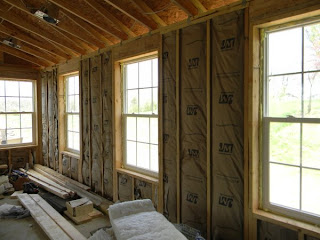Sometimes when I read two completely unrelated (on the surface) books, a connection is found.
It happened with the last two books I read. At first look, there would be no relationship. It was only when I read the last chapter of the second book that the light bulbs flashed.


The first was
In Defense of Food 
by Michael Pollan. This book has been on my list to read ever since I read
Food Rules
last summer. I wasn't disappointed. If anything, this book was even better.
The book is divided into three parts. The first defined and gave the history of nutritionism. The second described our western diseases and the third gave a game plan of what do to about it.
Like everyone else, I get so confused about the conflicting views on diet and nutrition that bombard us through the media daily. This book gave me confidence to truly know how to feed my family amidst the turmoil. What the book won't give you is a confidence in the food industry, "health" labels and all the publicity over the latest nutritional find.
The author is not a believer in a Creator but I came away from the book with an awe for the incredible way that God designed our bodies and the plants He provided to sustain us. Reading through the history of the western diet in the past 100 years and grasping just a tiny bit of the complexity of plants and humans, doesn't give me a desire to turn my health over to a scientist but builds my faith in God.
If you've ever read an article about the newest nutritional break through and wondered what in the world you should eat..If you have stood in the grocery store overwhelmed by the choices of low fat, no cholesterol, eighteen added vitamins, extra omega-3, etc, and just longed for simple food choices... I recommend
In Defense of Food.

 The Johnstown Flood
The Johnstown Flood
was my second book and a more different genre then the first could hardly be found.
David McCullough, in his masterful way of making history fascinating, describes the flood in 1889 that destroyed much of Johnstown, Pennsylvania. While unusual large rainfall, an "act of God", was blamed for the disaster, was the true culprit the fingerprint of men? Removing acres of trees from the mountains, narrowing the rivers to build the huge mills, and building a huge earth dam high in the mountains for a summer resort for Pittsburgh's steel millionaires certainly played a role in the disaster.
And here was where my mind went to nutrition and our diseases of civilization such as heart disease and diabetes. I'll share a few quotes from
The Johnstown Flood
.
"If man, for any reason, drastically alters the natural order, setting in motion whole series of chain reactions, then he better know what he is doing."
"They apparently never questioned the professed wisdom of the experts, nor bothered to look critically at what the experts were doing."
"Worse of all they had failed, out of indifference mostly, to comprehend the possible consequences of what they were doing, and particularly what those consequences might be should nature happen to behave in anything but the normal fashion, which of course, was exactly what was to be expected of nature."
Okay, so probably no other reader of
The Johnstown Flood
would ever make such a leap of imagination, but if the study of history is to learn something, then I'm taking this as a caution personally, not in the building of dams, but in the preparation of meals.
I love when our children connect something they are learning to some other area of life. It is inspiring to know that they "get it" and the knowledge has went deeper than the surface. I'm not sure how to promote it (in me or my children) besides consuming quality material, rich in ideas, and allow time to think. I think Charlotte Mason called it the science of relations.
Have you ever had a weird connection of two unrelated books or ideas?


































